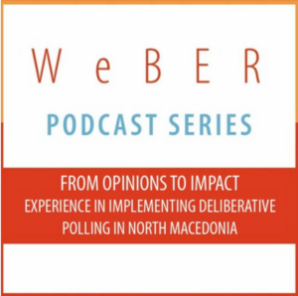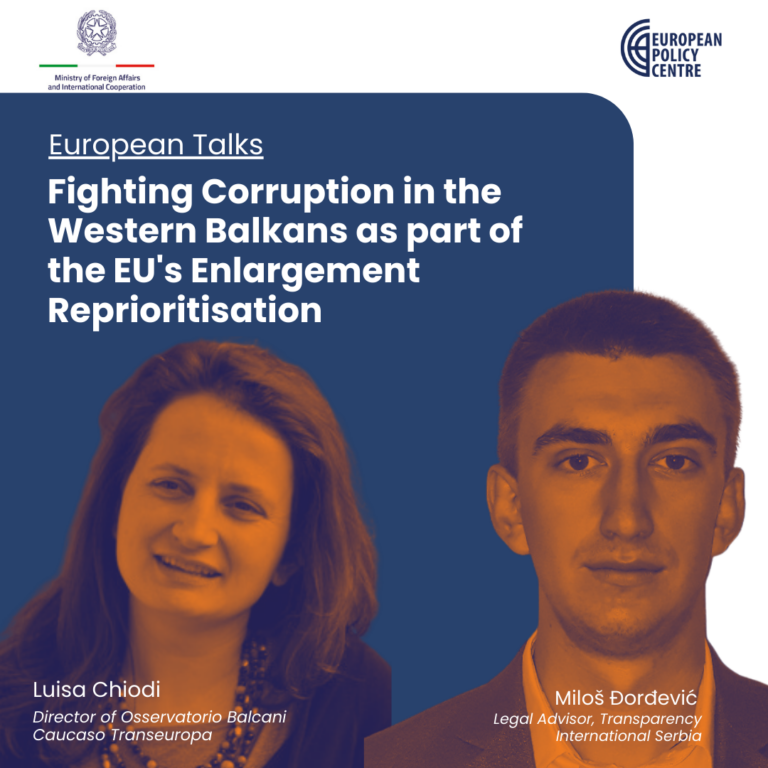Headquarters: Svetog Nauma 7, 11000
Office address: Đorđa Vajferta 13, 11000
Phone:: +381 11 4529 323

- Host: Milena Mihajlović
- Guests: Nicola Pontara, Country Manager of the World Bank in Serbia
- Published:
Bridging the Gap: Convergence strategies for Western Balkans’ EU future

Or listen:
This episode of WeBER Talks is dedicated to economic growth challenges and opportunities for the Western Balkans. WeBER 3.0 guest is Nicola Pontara, Country Manager of the World Bank in Serbia. He talked with Milena Mihajlović, CEP Programme Director and WeBER 3.0, about the region’s future and how reforms, governance, and technology can propel the Western Balkans toward convergence with the EU.
1. Growth Slowdown & Socioeconomic Divergence: While the Western Balkans experienced solid growth in the early 2000s, the region has struggled to maintain momentum post-2008. Nicola highlights the “golden period” between 2000 and 2008 but warns that without significant reforms, convergence with the EU could stretch as far as 2093 in a pessimistic scenario.
2. Governance Deficit: Poor governance remains a significant roadblock. Nicola emphasizes that countries in the region must focus on improving the rule of law, combating corruption, and increasing government accountability to accelerate growth and reduce the trust gap with their citizens.
3. The Role of State-Owned Enterprises: The discussion provides a key insight into the incomplete transition to market economies in the region. Many state-owned enterprises (SOEs) still dominate critical sectors like energy, limiting the private sector’s potential to drive growth. Privatization and the introduction of market competition are seen as crucial steps forward.
4. Digital Transition & Innovation as Key Catalysts: Excitingly, digital transformation can help bridge the institutional and governance gaps. Serbia has become a leader in digital innovation, spearheading initiatives in AI, biotech, and IT services. The region can leverage this momentum to modernize public services, increase transparency, and reduce bureaucracy.
5. Youth, Women & Brain Drain: Nicola calls for urgent reforms to integrate young people and women into the workforce. Improving educational curricula and fostering labour market flexibility will prevent further brain drain and ensure that economic benefits are more inclusive.
Looking forward, both experts agree that focusing on second-generation reforms is vital: deepening financial markets, boosting regional trade and connectivity, investing in human capital, and addressing the urgent need for green transition and sustainable development.
While challenges persist, especially in governance and institutional reforms, there is hope that with the right policies and an embrace of digital transformation, the region can achieve sustained growth and converge with the EU in the coming decades.
Find out more – www.par-monitor.org
Latest episodes

Pursuing More Deliberative Democracy and Citizen Participation: Where and How to Begin?
In this 11th episode of WeBER2.0 podcast, a special edition of European Talks focusing on the EU integration of the Western Balkans, host Miloš Đinđić, Programme Manager of the European

From Opinions to Impact: Experience in Implementing Deliberative polling in North Macedonia
In the tenth episode of WeBER Talks, we welcome Ms. Simonida Kacarska, Director of the European Policy Institute (EPI) in Skopje, a member of the Think for Europe Network and

Cirkularne migracije pre depopulacije: Jelena Stefanović
U novoj epizodi ovog serijala, naša gošća je bila Jelena Stefanović, turistički vodič, avanturistička travel blogerka i influenserka. S diplomama iz marketinga i turizma, ona je pravi spoj kreativnosti i
